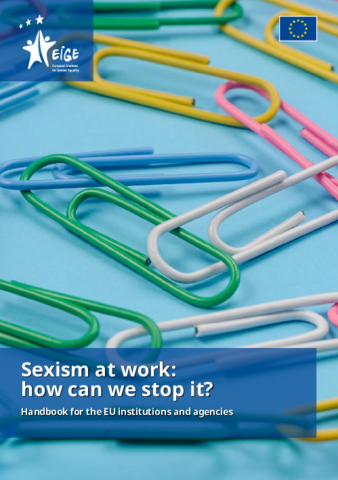Who is this handbook for?
This handbook will be relevant for every organisation and for all work contexts, both in the public and private sector. However, the content has been tailored to the context of the EU institutions and agencies.
What is the aim of this handbook?
The focus of this handbook is to help organisations understand the nature of sexism in work contexts and to provide leadership, management and staff with the tools to tackle it. The focus is on informal mechanisms to foster cultural change. The handbook also touches on ways to deal with sexual harassment, which is illegal, constitutes discrimination and is a form of violence. EU-wide legal obligations necessitate formal responses to such behaviour. While informal mechanisms can accompany formal responses to sexual harassment, they cannot replace them.
What is the scope of this handbook?
The focus is on policies which cover all staff employed directly by the EU (such as the Staff Regulations of Officials and Conditions of Employment of Other Servants of the European Union), highlighting specific good practices and pinpointing gaps.
Further reading
Online version of the handbook
Toolkit on Gender-sensitive communication
Gender Statistics Database: women and men in decision-making
